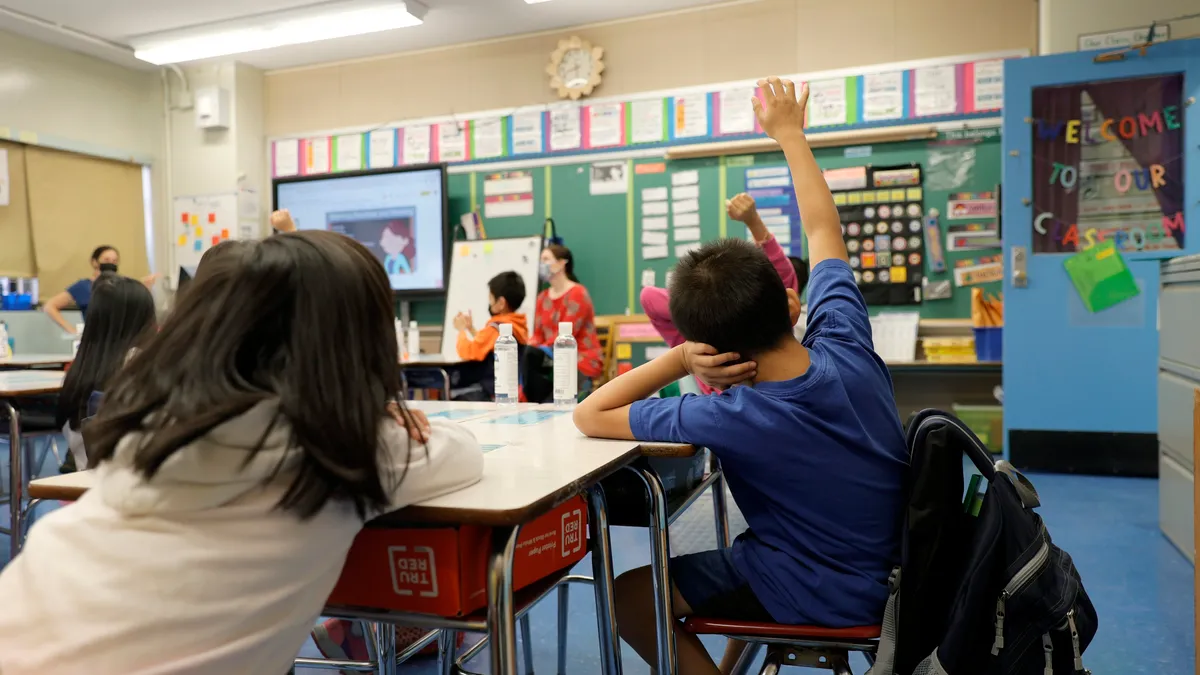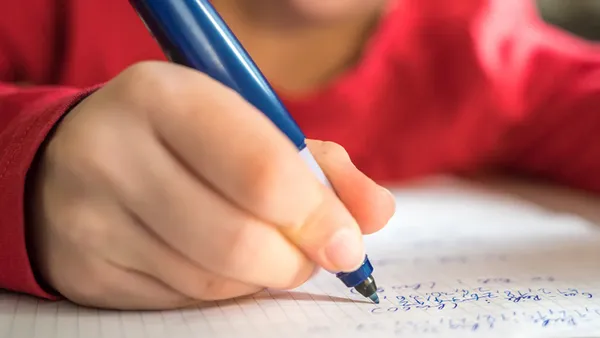Dive Brief:
-
As spring arrives and the end of the school year looms, educators may be rethinking literacy goals set for themselves and their students to make the most of the time remaining. By making adjustments, teachers can still help students end the year feeling positive about the work they've accomplished and educational goals they’ve attained, Kimberly N. Parker, director of the Crimson Summer Academy at Harvard University, writes for ASCD.
-
One step is for teachers to give themselves permission to move past a unit that may not be working, allowing students a new opportunity to achieve, Parker writes. Educators may also want to consider what students need academically and emotionally by checking in on that front, too. That information can help teachers re-map curriculum for these last few months so students can move forward with their learning in the ways they need.
-
Finally, by fostering a love of reading now, educators can help develop a habit children can continue during the summer. Teachers can also touch on book ban challenges launching around the country, giving students tools to use should they encounter issues accessing literature relevant to them, Parker writes.
Dive Insight:
As the school year winds down, educators can employ a variety of strategies to help students avoid potential summer slide. Learners may still need more support this summer, given the ongoing impact of COVID-19 learning loss.
There are many ideas educators and districts can employ to help students before classes end. For example, teachers can help get books into learners' hands, as experts believe reading can help to buffer against summer slide. Schools could allow students to borrow books from classroom and school libraries for the summer, or organize a field trip to the local public library to ensure learners have library cards ready to use.
Districts can consider how they structure summer programming, as well. Alexandria City Public Schools in Virginia, for example, made summer programs available to all pre-K-12 students in 2021. Schools may also want to consider adding a more hands-on approach to programs, which can help to engage children in subject material.
Additionally, arranging field trips to a local museum or public garden can also boost summer learning. The San Diego Natural History Museum invites classes to examine the flora and fauna of Southern California, while the Brooklyn Botanic Garden in New York offers on-site workshops and self-guided tours so students can learn more about local trees and plants.
Finally, making tutors available — even online — can relieve students and parents who may want to know that there will be academic support during the summer months. By putting together a cohesive summer program, educators can help students think of classes during these warmer days as potentially fun — and not punitive.












